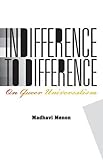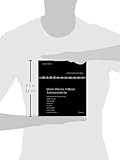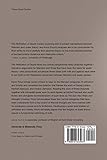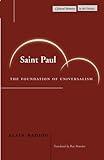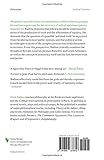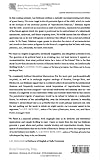When Duke University Press announced that their Series Q would be officially terminated in 2012, there was already a sense that the methodologies of “queering” were overabundant in the academy. Q was inaugurated in 1993 with Eve Kosofsky Sedgwick'sTendencies and spans over 40 volumes of works devoted to intersections of sexuality, cultural studies, gender, and social theory approached from a queer perspective. That The Chronicle of Higher Education ran an article on the ending of the series was less a symptom of normalization than it was a recognition: “to queer” already meant a “method.” Every progressive academic knew that nearly everything could be queered. In the article, William Germano retold the instructive story of Ilene Kalish, a queer publisher and academic, who, “when she saw a proposal for queering queerness, she knew a threshold had been reached.”
In recent years we have seen a counter-movement: a sort of unqueering queerness. If you are familiar with the differences: A Journal of Feminist Cultural Studies special issue titled "Queer Theory without Antinormativity," edited by Robyn Wiegman and Elizabeth Wilson, you will get the sense of this “unqueering” – at least for those immersed in what is now considered the “orthodoxy” of queer theory’s prominence in the 1990s. To queer anything was to run against a Foucaultian-defined norm, or the idea that Foucault’s analysis of power-knowledge can be always put to liberatory use. To queer a thing now easily means to argue against the Foucaultian norm in queer theory. Madhavi Menon suggests something similar when she asks: “Why do we confuse the policing [of identitarian categories] with the truth about ourselves?” The perspicacious, yet vitriolic review of Wiegman and Wilson’s issue by Jack Halberstam revealed as much. Halberstam’s attack was in many ways indicative of a queer theory trait Michael Warner identified in his contribution to the Chronicle article: a “queerer-than-thou competitiveness” that should position you against someone in the field of queer theory, or at least against someone’s politics there.
I am willing to characterize this phenomenon as a reaction against the “against” of queer theory’s political orthodoxy. Madhavi Menon’s recent book, Indifference to Difference: On Queer Universalism, is the manifestation of this double gesture of a “queer against” that has to struggle for its legitimacy. It does so with a very manifesto-like style, endorsing a politics that is not proximal to queer theorists. It does not help to advance her thesis that she sidelines Badiou’s attack on “democratic materialism,” of which queer theory is exemplary. (“Democratic materialism” is Badiou’s critical term for and against “postmodernism”; his main concern is that democratic materialism marks truths about “bodies and languages,” the stuff of the postmodern, obsolete.) The alarming similarity between queer theory and Badiou is anti-identitarianism.
Menon’s book is not an unprecedented project. Kevin Floyd’s The Reification of Desire: Toward a Queer Marxism opened the gate for a less hostile queer writing on Marxism; there is also Cinzia Arruzza’s work, and a small niche of scholars trying to bring closer queer theory and so-called “generic communism.” (This term is taken from Badiou’s Metapolitics and his recounting of Lenin’s critiques of democracy, but is used by Alexander Galloway precisely to point towards the emphasis on radical equality within queer theory “via axiomatic exploration of the insufficiency of identity,” contemporaneously in line with Menon’s argument.) Just recently the journal Badiou Studies released a special issue called “S(♀) - Towards a Queer Badiouian Feminism.” These works, as well as Menon’s book, dispels the idea that there are no living French philosophers left to be appropriated by queer theory.
Menon’s general argument is very clear, and it is developed succinctly in her "Introduction" and "Coda," both of which will be the subject of this review. The "Introduction" is the single most important item in this book. Missing its point would leave you indifferent to her case studies and how she walks the reader through examples of “political indifference.” Her argument is that “[e]mbracing the universal does not ask for the sacrifice of the particular but only indifference to it.” Throughout her introduction, she follows Badiou’s reading of the Gospel of Paul. Her analytical programme is clearly stated: “I want to use universalism’s fury to destroy our investment in difference as the basis of identity.” Her position on the universality-particularity debate cannot be missed: “While I will take as instructive the insistence on emptying out the universal, I am less tempted by the rush to then fill that emptiness.”
All of this culminates in the very ambitious claim that indifference is the political key to universalizing queerness. As it often happens with left-leaning theorists trying to dispense with (or at least problematize) identity politics, the ground of real contestation is a notion of “lived experience.” Inserting such a notion in one’s theory is a standard concern for anyone whose continental philosophy is both predominantly French and post-phenomenological. This is then translated into a political trope of progressive politics in the Western academies, of which queer theory is the brainchild (not the least because of its indebtedness to French philosophy). Thus, in her political statements, Menon claims that, because we should not focus on the either/or of difference and identity, but on the demand for either, “lived reality is at odds with identity politics." What is suggested is a subtle, yet passing transition to the ontological importance of queerness: in identitiarian thinking differences gain importance negatively (“different from”) rather than themselves being different from one another. So Menon suggests that Badiou’s Paul—a figure summarizing his critique of democratic materialism consisting of bodies and languages at the expense of the event of truth—could offer a universal panacea to policing “differences from” by being “allergic to specificity.” Under Badiou, an event is a horizon of theoretical possibility.
Menon takes the theoretical possibility of Paul’s event identity (expressed typically as subtraction, a “-1”) and translates it into a queer reinterpretation of evental subtraction of differences. The subtraction is not supposed to efface differences. For Menon, “universalism is now being resuscitated in the name of difference.” This is a remarkable claim and we need to pause and reflect on it. What would be the political gain here? Menon states that her argument about indifference pursues no gain as such. This is why it becomes very difficult to understand her political rationale. If a politics is modeled after indifference, such project can only be useful for activisms that deny the ontology of difference. And indeed the author easily dispenses with ontology. Menon is happy with the conclusion that an indifferent political activism would “challenge” exclusionary structures. Hence this is, strictly speaking, a metapolitical position, not an activist one immersed in the culture of “democratic materialism.” Menon hopes that first we should persuade activists that universalism renders all differences “unremarkable.” She finds a convincing transportation metaphor to describe the indifference argument: “indifference allows us to travel without asking for a visa to authenticate the legality of our desire." Only through admitting the unremarkability of differences can we implement a “no border” policy of indifference towards differences.
The indifference argument’s philosophical value lies in her ensuing theory of desire, which brings it closer to the world of queer theory. On this account, “ontology is always a fabrication that uses desire as its crutch." Regulating desire relies on ontologizing it. Here Menon offers a parallel between universalism and queerness as they both defy the limits of embodiment and the overflowing of desire. But this parallel seems to imply that queerness gets dangerously closer to disembodiment (best expressed in Chapter 3). There is a point where Menon seems to confuse “superabundance” with “disembodiment,” namely, when she states that the universal queerness of desire does not need a fixed body. At this point her bold indifference argument is too close to somatophobia (though I am not sure this is necessarily a negative feature for her).
Without the limitations of embodiment and fixed bodies, queer universalism can indeed be indifferent to difference. Queerness and universality meet halfway in the ontological impossibility as “horizon” or “self-identity.” Impossibility is the common denominator for both, as no thing can manifest ontological wholeness. If Menon’s presupposition that particularity is no universality is banal, her original twist is that the singular quality of a difference is the “nonfixity of the particular." She implies that, politically, such nonfixity gives political mobility to social movements organized around desire; embracing this nonfixity is the same as translating the indifference toward difference politically (and hence resolve the conundrums of identity politics). Simply, desire is not malleable to ontological emulation of differences. Its potential lies in its worst political quality, its being indifferent to “bodies and colors and genitalia.” So instead of ontology of desire, queer universalism offers indifference to ontology without cancelling out desire: in short, the politics of indifference is sublimated in what it does not do (ontology) and what it disavows (embodiment). The universal organizing power of queer universalism is “its mode of refusal.”
Put differently, this mode of refusing both levels (ontology/embodiment) is also a form of queer revisionism of the sociocultural world as seen by poststructuralist philosophy. Accepting this form amounts to a methodology of political blindness and arbitrariness to precisely the individual lived experience. The problems with Menon’s argument arise when disembodiment is no longer an option (if it ever was): if queerness refuses particularity, as Menon prescribes, then what should we do with our bodies? Menon’s three chapters deal with problems of embodiment under her indifference argument, and she does give interesting, if at times perplexing, examples, which cannot dispel concerns over somatophobia.
In the final “Coda,” Menon beautifully recaptures some of her main theses in an even more condensed form. To dispel the particularism of her examples, which I do not discuss here, she goes into a discussion on “parts and wholes.” The text reads as a queer rehashing of ancient atomism. (She is not alone in this: consider some of the work by Levi Bryant on queer onticology and Michael O’Rourke’s work on quantum queer as “the theory of everything.”) The disembodying and dethroning of causality, which Menon emphasized in the "Introduction," climaxes into a mini-treatise on queer physicalism. Queer is so uncontainable in the categories of the particular and the universal that it seems to embody the pursuit of the smallest possible unit of analysis of desire. Faced with the givenness of embodiment (“queer universalism” is merely a qualifier of embodiment), some sort of a politics “based on partition” is recognized by Menon. To salvage the politics of indifference in the face of partition and the insistence of particularity requires a move that will dispel accusations of somatophobia and thus a newly universalized antifeminism. Menon curbs those potential accusations by saying she does not equate universalism and wholeness; but what is left is, again, the said “impossibility” of self-identity or the “part” – queer as the smallest atom of non-ontological desire. Allegedly, this move prevents the “part” to become a totalitarian whole; in this, Menon’s consideration manifests philosophical pragmaticism. This also opens to gate to an anti-ontological mobility of queerness or queer universalism, not reducing any one human being to a tethered place in the world of embodiments. For Menon, a politics facing “partition” is one which disallows the authoritarian rule of particularity representing itself as an “ontological whole.” What is at stake is, again, our “lived reality.” I think most of the readers will agree with Menon on the point that “our lives … are not ontologically grounded” even while they could reject her claim that universalism is the language of “all” because it indexes the “not-all.” If her theory offers a horizon, it is the one of existential mobility, which she names indifference.
Menon’s argument can be easily read as the sign of ultimate exhaustion from identity politics and philosophies of differences, paradoxically spearheaded and mainstreamed by queer theory globally. I do not think this is the problem per se, as there is no shortage of theories to be incorporated and pitted against philosophies of differences (Laruelle is a good example). In my opinion, the problem is that queer theory is inexhaustible in its pursuits of differences. It is a problem that it is synonymous with differences. Menon seems to respond to this state of affairs; she does not openly call for an “unqueering,” but her book is a move against the ineffable queerness of literally everything, when seen only from the perspective of its differential status.
One cannot help but feel that, even in the world of “unqueering” the norms of queer theory, there is a certain impotence in the queering to begin with. Overall, Menon’s idea to queer Badiou and make his evental philosophy talk to queer theorists is sidetracked by the very effect of queering a French intellectual (the same is true for queering any "X," to allude to Berlant and Warner’s seminal essay). Even while proposing and trying to reveal that queer can be a universalism, Menon’s project indicates that just as ontology uses desire as its crutch, so is queer used as the conceptual crutch of philosophy and the social sciences. It is their underlaborer, engaged in an outsourced deconstruction driven by the grand narratives of systematic philosophers like Badiou (indeed, one of the very last systematic ones). It is a one-way ideational pollution. For all the talk on queer theory’s much-needed reorientation toward normativity (Wiegman and Wilson) or its universalism (Menon), appropriating Badiou in the service of queer does expose queering as a form of thought inferior to philosophy. (Note that what is at hand is appropriation of queer, not of “queering”: the book’s subtitle is about queer universalism, not queering universalism, as if it has already happened.) This is precisely what queer universalism should not be: this is, in my opinion, the major problem of her book. While her chapters deviate productively from Badiousian philosophy, the "Introduction" and the "Coda" seal the project as a tendentiously self-enclosed one, a predictable ambition given the breadth of her argument I tried to summarize above. But to appropriate in order to queer is to counter the universalism of queer. Queer theory thus is manifested as a philosophical inferiority complex. It is the universal crutch of anti-identitarian thinkers even in philosophy who pretentiously seek to overcome the atonalities of subjectivities in a world of irreducible differences and embodiment, bodies and languages – the perennial obstacle for universalism’s ultimate realization.
Since the early 1990s every decade has seen its small canon of queer theory must-reads. Given the theoretical and political complexities and ambitions of this work, I believe Menon’s book is the kind of intervention that will easily become part of the ongoing decade’s seminal queer texts: a text comparable to Sedgwick’s Tendencies and Edelman’s No Future, since Menon captures precisely the tendencies of queer futures.
I thank Andrew Ryder for his comments and suggestions.
Stanimir Panayotov is a PhD student in Comparative Gender Studies at the Central European University, Budapest, working at the intersection of non-philosophy, new realism, feminist philosophy and Neoplatonism.
Image via MIT.

